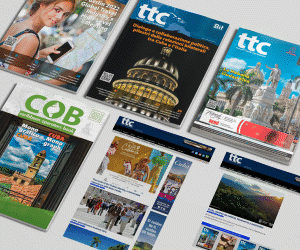By Frank Martin
According to the World Tourism Organization (UNWTO) a third of the pleasure destinations in the world are now completely closed to tourism due to the global pandemic.
In other words, one in three of the places dedicated to the leisure industry are totally paralyzed.
It is not only the destinations that could not open until now due to still facing high rates of Covid-19 but also those that closet after a brief opening.
Part of the particularly serious problem is currently caused by new variants of the coronavirus whose real threat has not yet been properly study.
This situation is frequently affecting tourist regions in Asia, the Pacific and Europe.
UNWTO released a report dealing with travel restrictions that are active in more than 200 destinations.
In badly cases, the reopening that started in the second half of 2020 ended during the risky first two months of 2021.
Findings in this regard indicates that last February 32 percent of all destinations in the world, about 69 in total, were completely closed to vacation travelers.
The situation reveals that governments are increasingly cautious in the face of the epidemic.
A hopeful 34% of world destinations were partially closed to international tourists last month.
In such circumstances, the UNWTO has not marginalized its efforts to stimulate tourist reactivation, although it has not disagreed with restrictions on recreational travel.
UNWTO Secretary General Zurab Polilikashvili said in this regard that “now, as we work to revive tourism, we must recognize that restrictions are only part of the solution.”
With this, Polilikashvili drew attention to the need for responses to the current epidemic not to be absolute and hermetically drastic.
He advised the authorities that in determining destination closures they should be based in “the most recent data and analysis that must be constantly reviewed to allow later a safe and responsible restart of a sector on which many millions of companies and jobs depend as soon as possible.”
The organization’s analysis found “regional differences” in these decisions, some more absolute than others.
He supported that closure decisions be based on careful evidence- and risk-based studies and possible restrictions other than a total closure.
In many countries still affected by high numbers of those infected with the coronavirus, measures are applied to avoid non acceptable levels of epidemic spread.
Experts believe that compliance with actions such as limitation and not total trips closure, mandatory negative PCR tests and quarantines can be good weapons to combat the pandemic.
About closures a worrying point for the near future of the tourism industry is that the top ten tourism outbound markets that currently advise against non-essential travel abroad generated 44 percent of all international arrivals in 2018.

MORE NEWS











